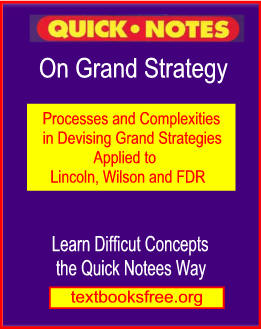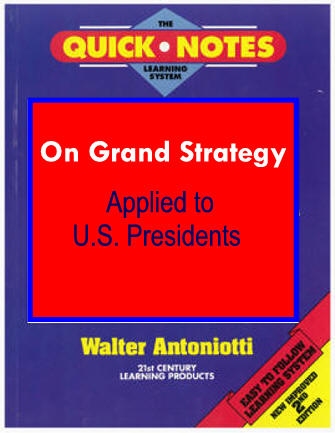This most important book covered the evolution of strategic thinking from Machiavelli to the nuclear age,
"Like “Makers of Modern Strategy-FROM MACHIAVELLI TO THE NUCLEAR AGE,” it explores the facets of wisdom, temperament and courage that create great leaders and enduring empires.
“On Grand Strategy” begins with the Persian king Xerxes ’ invasion of Greece in 480 B.C., an invasion that went spectacularly wrong. Xerxes suffered from an inability to connect the ends he desired—control of Greece and ultimately all of Europe—with the resources available. Xerxes was not the last warrior-king to suffer from that particular affliction.
Napoleon underestimated Russian winter and the will of Russian peasant even before he met defeat at Waterloo. Hitler had troops invade Russia in summer uniforms expecting quick victory but another cruel winter took its toll.
These leaders were like Isaiah Berlin figures. They were hedgehogs over-focused on a doctrine or an objective and failed to adapt to meet the current situation. Gaddis respected foxes more. They hold fast to objectives and adjust their tactics to difficulties—geography, weather, time, public support.
Desires often overwhelm available means requiring a strategy set priorities, build alliances and conserve resources.
Mr. Gaddis presents an array of leaders who
mastered this strategy method.
Queen Elizabeth I understood British geography
strength and
her sea power would keep her safe.
Abraham Lincoln
adjusted his thinking on slavery from wanting to block
its growth to arming free blacks to emancipation of slaves held
in belligerent territory.
Franklin Roosevelt focused on the greater strategic
threat Germany rather than Japan who had struck first.
They all choose historically successful strategic principles
that Mr. Gaddis feels will work in the future.
Not a perfect book, On Grand Strategy short-changes Eastern tradition and doesn’t effectively analyze how the nuclear revolution affects military strategy. He shows many leaders with few strategy skills led their countries poorly.
Success is not guaranteed. It require wisdom, historical sense, and the ability to “respects time, space, and scale.”
Mr. Nagl is the headmaster of The Haverford School. A retired Army officer, he saw combat in both Iraq wars and is the author of “Knife Fights: A Memoir of Modern War in Theory and Practice.”
Gordon M. Goldstein is an adjunct Senior Fellow at the Council on Foreign Relations and the author of “Lessons in Disaster: McGeorge Bundy and the Path to War in Vietnam.

